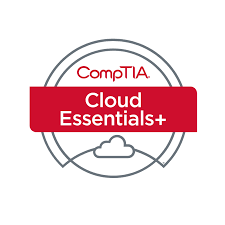CompTIA Cloud Essentials+

About Course
The CompTIA Cloud Essentials+ course is an educational framework designed for learners to understand and navigate the increasingly complex cloud environment. It serves as a foundational guide to cloud principles, providing insights into various service and deployment models, virtualization, and critical design elements such as redundancy and high availability. By exploring cloud networking and storage, learners gain essential knowledge on how to connect and utilize cloud resources effectively.Assessing cloud needs is a pivotal component, equipping individuals with the skills to conduct feasibility studies, gap analyses, and understand cloud services like data analytics and IoT. Engaging cloud vendors covers business concepts, licensing, and vendor evaluations, crucial for informed decision-making. Management and technical operations delve into the operational aspects of the cloud, including DevOps and resource optimization.Governance and risk, along with compliance and security, are also addressed, reinforcing the importance of managing risk and adhering to regulations and security best practices in cloud environments. This comprehensive course is instrumental for professionals seeking to leverage cloud technology effectively, ensuring they are equipped with the knowledge to make strategic decisions and manage cloud resources efficiently.